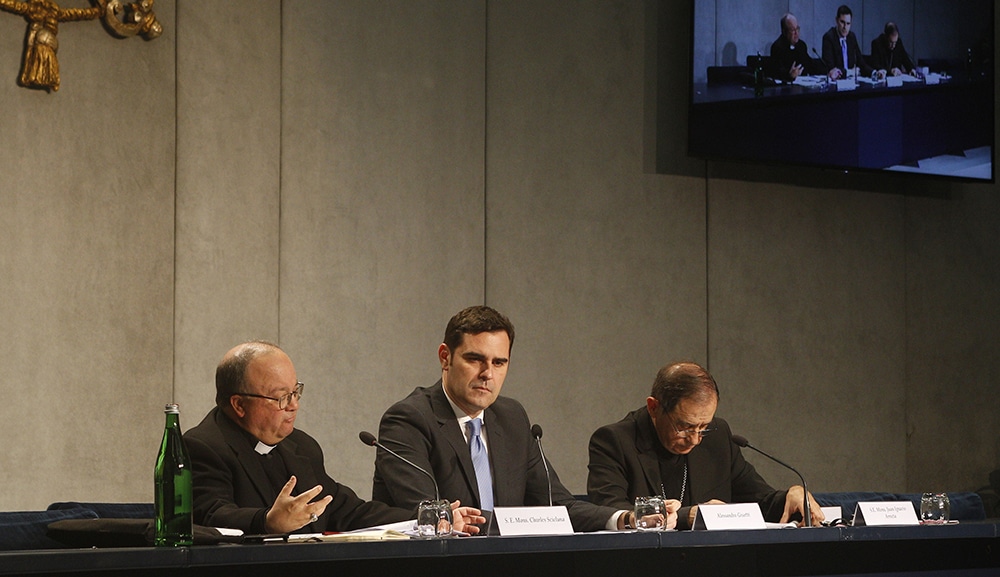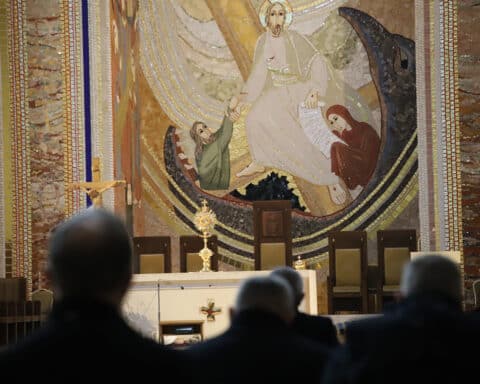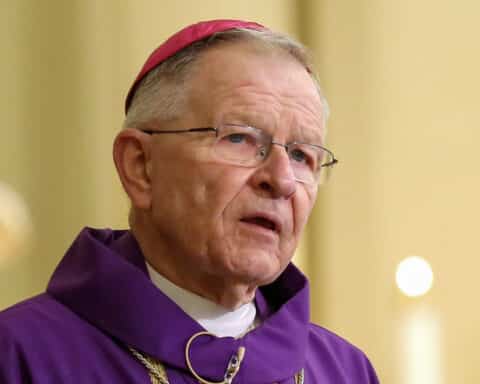The document Vos estis lux mundi (“You are the light of the world”), issued motu proprio (“on his own initiative”) and signed by Pope Francis on May 7 and published two days later, sets the stage for a new and revolutionary approach to fighting sexual abuse in the Catholic Church. That the new legislation has come just months following the February summit at the Vatican represents, in itself, a groundbreaking speed record for producing legislation of such significance. Pope Francis gets the credit for this: He has now raised hopes and expectations and has placed beyond cavil that he is serious about addressing the crisis not only with words, but also with concrete actions.
The February meeting signaled a new international approach to combatting the sexual abuse of minors and the vulnerable, a point underscored by Cardinal Oswald Gracias, Archbishop of Bombay, India, when he reminded all that this is a problem to be confronted together at “regional, national, local diocesan and even parochial levels” and that “no bishop should say to himself, ‘I face these problems and challenges alone.'” In fact, Vos estis lux mundi offers a new measure of unity in how to approach this problem, which is one reason why a universal law to address sexual abuse is so important.
Responsibility of hierarchy
The new norms offer several fundamental unifying elements. First, all clerics and members of religious institutes throughout the world are obligated to report abuse, use of child pornography, violent sexual conduct with adults and the cover-up of those crimes by Church leaders. Second, all dioceses in the world must have publicly accessible structures to guarantee that abuse can be more easily reported, no matter where it occurs. Third, the new norms offer whistleblower protections for all reporters. A victim who wishes to tell his or her story, or a cleric or religious who is aware of abuse, can no longer be silenced or retaliated against for coming forward. Finally, the new norms create a series of specific procedures, also to be applied throughout the world, that further clarify the roles of the local Church and Rome with regard to investigation of allegations against Church leaders.
Some have been confused about whether the law changes how priests and religious are investigated for abuses. It does not. While the law provides for reporting of those cases, they are handled through the same channels as before: first to their ordinary and then, in the case of clerical abuse of minors, to the Congregation for the Doctrine of the Faith.
Another question relates to how the investigation of abuse or cover-up by Church leaders — cardinals, patriarchs, bishops, papal legates and supreme moderators — is carried out. According to the law, the “metropolitan,” who is the archbishop of his diocese and presides over an ecclesiastical province, conducts the investigation, with the legislation also encouraging lay collaboration, as consistent with Catholic ecclesiology. In fact, for the first time, the motu proprio recognizes that bishops of each ecclesiastical province “may” establish lists of qualified persons from which the metropolitan can — but does not have to — choose those most suitable to assist in each individual investigation of a Church leader.
Since the Catholic Church is hierarchically structured, the key element of this legislation is that the investigation is carried out by and under the responsibility of a member of the hierarchy who is charged to conduct it through instructions provided for the specific case and with tight time limits on how long the investigation will take. Pope Francis has effectively said to both the Roman Curia and the dioceses of the world, “Get the job of investigation done without delay!”
Episcopal conferences
Another question that has been raised asks what role, if any, do the episcopal conferences play in addressing abuse.
Under the law, episcopal conferences may issue directives regarding how the metropolitan is to conduct the investigation. Episcopal conferences are not, under canon law, permitted to issue norms that are binding upon conference members: they need the recognition of the Holy See for that particular legislation to enter into force.
Such complementary legislation is meant to supplement rather than supplant or alter general legislation such as Vos estis lux mundi. For example, the new law does not permit the establishment of a permanent lay commission or board to receive or independently examine allegations against bishops. The metropolitan can gather around him the best lay experts he can find and rely on their various specializations. But he cannot simply hand off control of a case to a lay board and thereby shirk his fundamental responsibilities.
After all, this papal legislation reminds us what it means to be truly Catholic: one respects the hierarchical structure of the Church, while giving an opportunity to all to collaborate, each according to his or her own suitability, knowledge, prudence and integrity. Indeed, the universal nature of our Church requires a certain uniformity of approach to the adjudication of her bishops and it is for this reason that instructions regarding investigations come from Rome, are entrusted to a bishop and return to Rome for judgment. Independent review boards for bishops go against this fundamental principle of Catholic ecclesiology, and would set our Catholic Church on a slow but sure course towards fragmentation and, ultimately, Protestantism.
Civil and canonical law
Another misunderstanding relates to people who say the law is somehow lacking because it does not impose a worldwide obligation to report sexual abuse to civil authorities. That criticism is unwarranted. First of all, the new legislation makes a powerful, indeed unprecedented, reference to civil law, by stating that the rights and obligations established by civil laws must be respected (of course with any exception to that rule required to protect the seal of confession).
But the critics, as well intentioned as they may be, also miss an essential point of the new legislation: it is not the task of the supreme legislator to actively interfere with civil jurisdictions. The scope of the law is clear: The pope is creating a reporting obligation for abuse by clerics and religious, and a procedure for reporting and investigating complaints against bishops in the ecclesiastical jurisdiction. In other words, the scope of this law is to take the giant step of ensuring that, on a world-wide level, well-functioning reporting mechanisms exist within the Church. Even if mandatory reporting to civil authorities would have been possible or advisable, the truth of the matter is that a clear procedure was needed to address the investigation of abuse or cover-up by bishops and other ecclesiastical authorities and to deal with them internally.
In turn, the outcome of such a procedure will enable the supreme authority in the Church to make the necessary canonical decisions if abuse or cover-up is uncovered by the investigation. As such, the motu proprio shows that within the Church, nobody is above the law, and abuse or cover-up by high-ranking prelates will be addressed.
In addition, by forcing more reports into the ecclesiastical system, they are more likely to get to people in the hierarchy who have mandatory duties to report to civil authorities. Moreover, given that many civil jurisdictions throughout the world still do not have mandatory reporting laws, one can now hope that the example set throughout the world of mandatory reporting within the Church will encourage civil authorities to adopt similar reporting systems in more civil jurisdictions. In other words, Vos estis lux mundi can be expected to lead by example.
Procedural law
Finally, there is some confusion about what type of law is Vos estis lux mundi. It is a procedural law related to how a case is to be reported and investigated and guaranteeing protections to people who report. The motu proprio is not designed to create rules for trial or describe penalties or administrative measures. That is for other parts of canon law which are largely already in place.
Likewise, Vos estis lux mundi does not offer a guarantee that abuse or cover-up will not occur. That would be impossible for any single law, since fighting abuse means taking many different kinds of measures at different levels in different ways.
What the law does do is offer a clear path forward in case abuse or cover-up occurs. Catholics should also not forget that, even though there is now a clear procedure, it is not always easy for victims or those who are aware of abuse or cover-up to report. That requires a lot of courage, and courage is something a legislator cannot give. The legislator can only create a framework and protect the reporter from retaliation. It is now the task of all Catholics to support and to encourage those who want to come forward. That requires a change of heart, or, to use the words of Pope Francis, a process of conversion.





